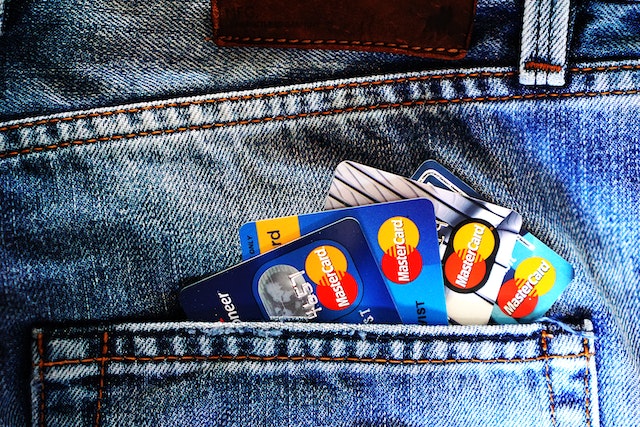How Many Credit Cards Should I Have in Singapore?
How Many Credit Cards Should I Have? When it comes to managing your finances, being organised is key. This means having a strong understanding of how much money you have coming in and going out at all times. One way you can keep track of this is by tracking where your money goes with a budget. But if you’re not sure where to start or what areas need better organization, one good place to start is reviewing how many credit cards you have in the first place!
How many credit cards should be in your wallet?
There isn’t a hard and fast rule about how many credit cards you should have in Singapore (or anywhere else in the world).

How many depends on your spending habits: Do they vary from month to month? Do they change depending on the season? If so, then adding more than one or two can provide greater flexibility while also helping to keep things balanced.
On the other hand, if your lifestyle is relatively consistent throughout each month (and over time), then less may be better when it comes to managing multiple lines of credit—especially if one stands out as being more important than all others due to its rewards offering or low interest rate.
The key thing here is balance; having too much debt will likely hurt your credit score just as much as having too little available cash on hand would cause problems elsewhere in life!
Why it’s important to keep track of your spending habits
In general, the more you know about your spending habits, the better. Once you’re aware of how much money is coming in and going out of your account, it becomes easier to plan for expenses and save for big purchases.

In addition to keeping track of your credit card balance each month and calculating what percentage of it you owe on each card (not including interest), it’s helpful to log where all your money goes—whether that’s groceries or gas for your car. This way, when things get tight and the rent check arrives before payday does, there are no surprises waiting underneath other bills that have gone unpaid yet again.
There are plenty of apps out there that make tracking spending easy—you can even ask Siri or Alexa if you’ve forgotten what went down at last night’s dinner party! But whatever method works best for you as long as it helps curb impulse buys so they don’t end up costing too much down the road.
Decide what kind of spender you are, then choose your cards accordingly.
There are three kinds of people: spenders, savers and the middle-of-the-road. If you are a spender, you should have multiple credit cards. If you are a saver, you should have fewer cards but higher limits per card. Lastly, if you’re somewhere in between with both habits (like me), then we suggest having a mix of cards that can help you manage your spending habits and give yourself more options when it comes to using your credit card wisely.

If you don’t have a credit card yet, it’s important to know that there are multiple types of cards available. Each one has its own benefits and features so it’s important to pick the right kind for your lifestyle.
Don’t go for too many credit cards at once.
When it comes to credit cards, one of the most common mistakes people make is applying for too many at once. If you’re new to credit cards, it’s tempting to think that the more accounts you have open, the better your credit score will be.

But that’s not true—in fact, opening a bunch of cards at once could actually hurt your score by making it look like you’re desperate for cash or otherwise overextending yourself financially. So don’t go on a mad rush trying to get as many new accounts open as possible!
Instead of applying for all available offers at once (which would be a mistake), focus on getting one or two good ones and then maintaining those relationships over time until they mature into excellent standing.
Don’t get too many credit cards from the same bank.
If you have multiple cards from the same bank, the bank will likely be able to gauge your spending habits and offer you higher limits or lower interest rates on those cards.

In contrast, if you have a credit card from Bank A and one from Bank B, they’ll both offer more competitive deals as they don’t know how much money is being spent in total. This is why it’s important not to apply for a few credit cards with the same bank unless it’s absolutely necessary (for example, if they’re offering an exclusive deal).
It’s important to keep track of your spending habits, so that you only get the number of cards that make sense for you.
It’s important to keep track of your spending habits, so that you only get the number of cards that make sense for you. If you want to use your credit card for travel and other expenses, having multiple cards can be very useful. But if you prefer to stick with personal spending only, then it may not be worth applying for a new card just because it has a great sign-up bonus or rewards rate.

It’s also a good idea to check out some apps that help people track their spending habits. Some apps will even allow users to set budget goals and track how much they’re spending on each category or item individually (so if there are certain things in life where we want to spend more money than others).
Conclusion
So, how many credit cards should I have in Singapore? The answer depends on your individual situation. There are many factors to consider: what kind of spender are you? How much do you earn? What’s your emergency fund like? Do you know all the fees associated with each card, including late payment charges and annual fees? If so, then it’s time to get started on building your own credit card collection! We hope this article has helped give some insight into which type of cards would be best for your needs. Happy hunting!



